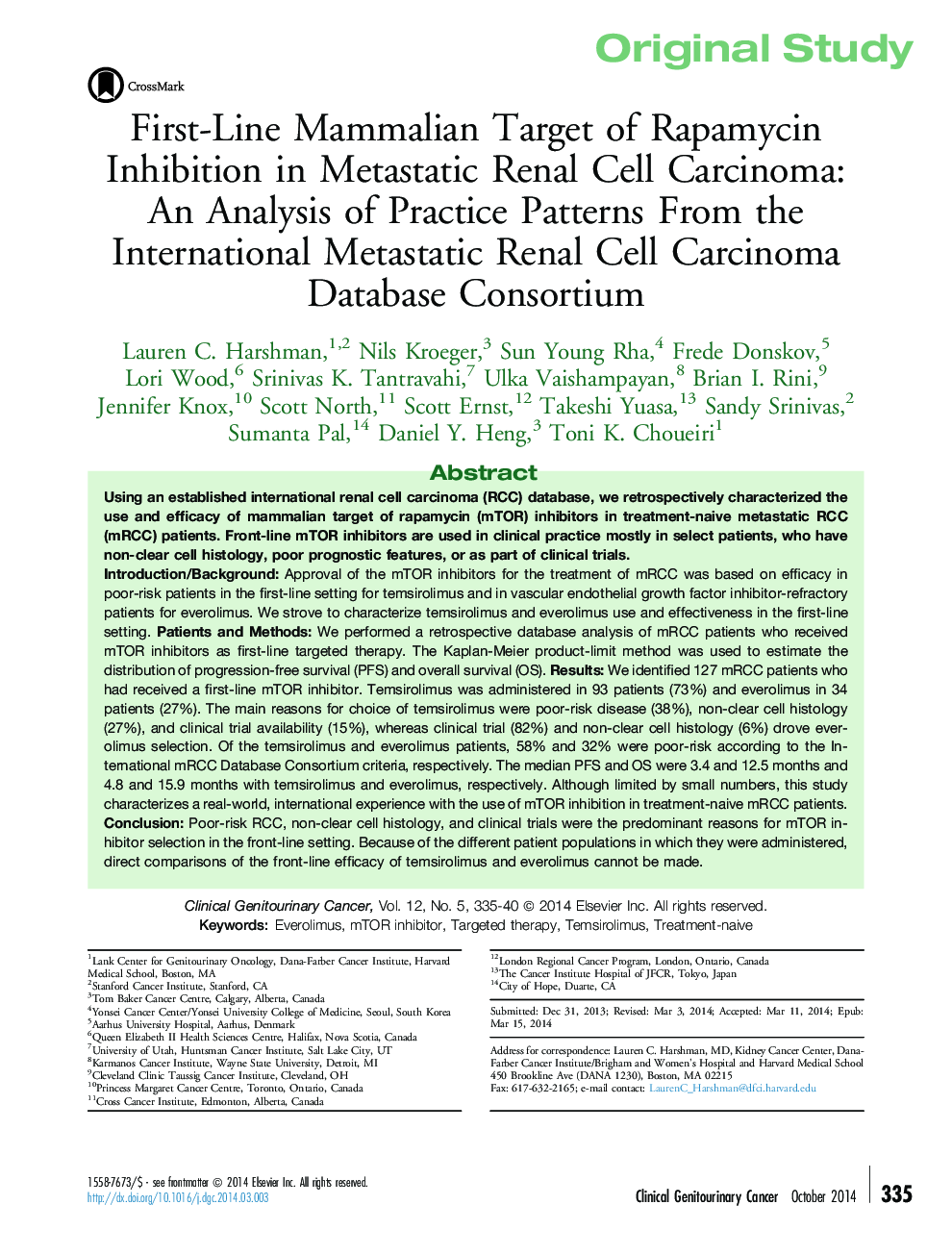| کد مقاله | کد نشریه | سال انتشار | مقاله انگلیسی | نسخه تمام متن |
|---|---|---|---|---|
| 2752115 | 1149545 | 2014 | 6 صفحه PDF | دانلود رایگان |
Introduction/BackgroundApproval of the mTOR inhibitors for the treatment of mRCC was based on efficacy in poor-risk patients in the first-line setting for temsirolimus and in vascular endothelial growth factor inhibitor-refractory patients for everolimus. We strove to characterize temsirolimus and everolimus use and effectiveness in the first-line setting.Patients and MethodsWe performed a retrospective database analysis of mRCC patients who received mTOR inhibitors as first-line targeted therapy. The Kaplan-Meier product-limit method was used to estimate the distribution of progression-free survival (PFS) and overall survival (OS).ResultsWe identified 127 mRCC patients who had received a first-line mTOR inhibitor. Temsirolimus was administered in 93 patients (73%) and everolimus in 34 patients (27%). The main reasons for choice of temsirolimus were poor-risk disease (38%), non-clear cell histology (27%), and clinical trial availability (15%), whereas clinical trial (82%) and non-clear cell histology (6%) drove everolimus selection. Of the temsirolimus and everolimus patients, 58% and 32% were poor-risk according to the International mRCC Database Consortium criteria, respectively. The median PFS and OS were 3.4 and 12.5 months and 4.8 and 15.9 months with temsirolimus and everolimus, respectively. Although limited by small numbers, this study characterizes a real-world, international experience with the use of mTOR inhibition in treatment-naive mRCC patients.ConclusionPoor-risk RCC, non-clear cell histology, and clinical trials were the predominant reasons for mTOR inhibitor selection in the front-line setting. Because of the different patient populations in which they were administered, direct comparisons of the front-line efficacy of temsirolimus and everolimus cannot be made.
Journal: Clinical Genitourinary Cancer - Volume 12, Issue 5, October 2014, Pages 335–340
